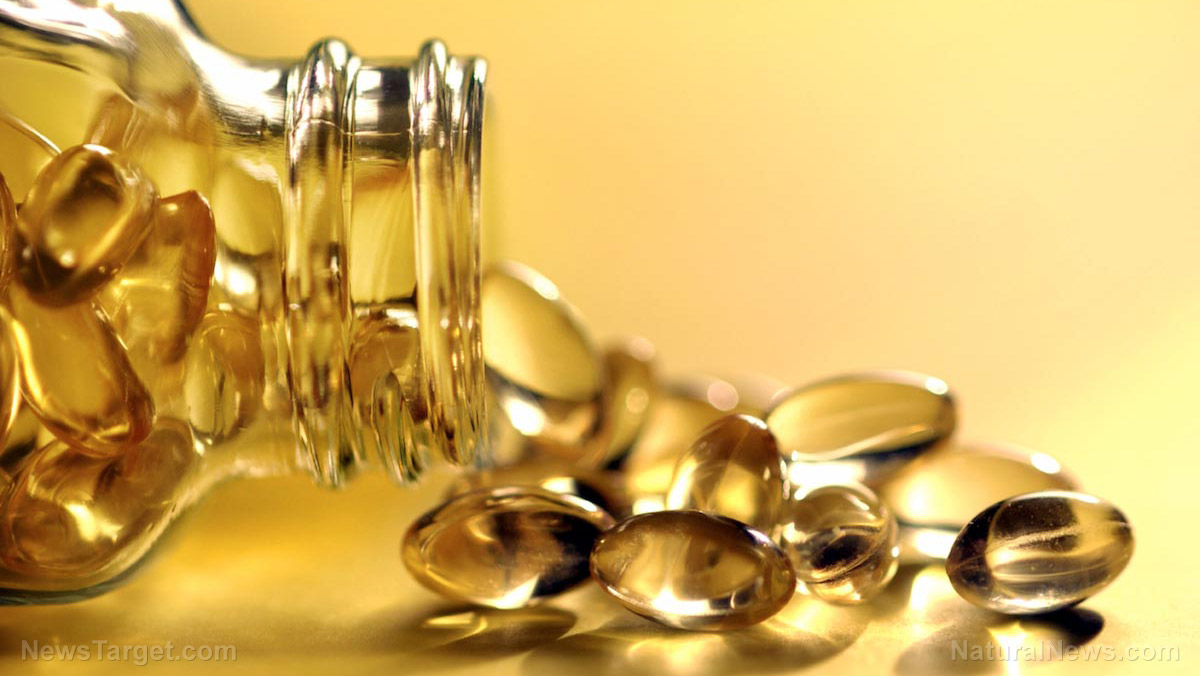Pomegranate juice found to clean your arteries and lower your risk of a heart attack
03/24/2019 / By Zoey Sky

Pomegranates are nutritious fruits, and the juice from the fruit offers many health benefits. According to a study, drinking pomegranate can even significantly improve heart health.
Pomegranate juice’s effect on heart health
Pomegranates have a remarkable nutrient profile. A cup of pomegranate seeds or arils (174 grams [g]) has fiber, protein, vitamins C and K, folate, and potassium.
According to a study in the journal Atherosclerosis: “Pomegranate juice consumption resulted in a significant IMT [intima-media thickness] reduction, by up to 30%, after 1 year.”
The intima-media, the middle portion of the arteries, can become inflamed and filled up with plaque made up of oxidized fats, immune cells, and their debris. This condition is colloquially referred to as “blocked arteries.”
When the intima-media grows thicker, there is less space for the blood contents to move through the opening (lumen) of the arteries. Once the arteries eventually close or become blocked, you may suffer from severe conditions or even death.
This highlights the importance of natural cures that can safely reduce, or reverse, intima-media thickening to address the root cause of atherosclerosis and deaths associated with cardiovascular mortality. (Related: Pomegranate juice found to combat systemic inflammation throughout the body.)
In a separate 2004 study, which was published in the journal Clinical Nutrition, a team of Israeli researchers found that administering pomegranate juice over the course of a year can help reverse plaque accumulation in the carotid arteries of patients with severe (though symptomless), carotid artery stenosis.
For this study, carotid artery stenosis was defined as 70 to 90 percent blockage in the internal carotid arteries. The researchers observed 19 participants: five women and 14 men. The volunteers were aged 65 to 75, and they were all non-smokers. The participants were randomized to receive either pomegranate juice or placebo.
Ten patients were in the pomegranate juice treatment group and they received 8.11 ounces (240 milliliters [ml]) of pomegranate juice per day, for a period of one year. Five volunteers from the pomegranate juice group agreed to continue for up to three years.
Meanwhile, nine patients in the control group did not consume pomegranate juice. Both groups were matched with similar blood lipid and glucose concentrations, blood pressure, and with similar medication regimens that included blood-pressure lowering (like ACE inhibitors, beta-blockers, or calcium channel blockers) and lipid-lowering drugs, like statins.
The results of the study revealed that the mean intima-media thickness of the left and right common carotid arteries in severe carotid artery stenosis patients who consumed pomegranate juice for at least a year reduced after three, six, nine, and 12 months of pomegranate juice consumption by 13, 22, 26, and 35 percent, respectively, compared to baseline values.
How pomegranate improves heart health
In the study, the scientists detailed three potential mechanisms of action behind pomegranate’s observed anti-atherosclerotic activity.
Antioxidant properties
The participants who were given pomegranate juice had noteworthy reductions in oxidative stress, along with a decrease in autoantibodies formed against a form of oxidized low-density lipoprotein (Ox-LDL) linked to the pathological process of atherosclerosis. This suggests that pomegranate juice helped prevent the heart disease-promoting effects of oxidative stress.
Blood pressure lowering properties
Taking pomegranate juice significantly improved the systolic blood pressure of the patients by seven, 11, 10, 10, and 12 percent after one, three, six, nine, and 12 months of pomegranate consumption, respectively, compared to values obtained prior to the treatment.
The researchers posit that pomegranate helped reduce systolic blood pressure because it has a healing effect on the endothelium (the inner lining of the artery) that is unable to relax fully when a person has a condition called endothelial dysfunction.
Plaque lesion stabilization
Two of the ten patients taking pomegranate juice after three and 12 months experienced clinical deterioration. The volunteers underwent carotid surgery, and the lesions were analyzed to determine the difference in their composition compared to those in the control group.
The researchers identified four distinct positive differences in the composition of the pomegranate-treated lesions.
- Reduced cholesterol content – The cholesterol content in carotid lesions from the two patients who consumed the juice was lower by 58 and 20 percent, respectively, compared to lesions from volunteers with CAS in the control group.
- Reduced lipid peroxides –The lipid peroxide content of lesions from the patients who consumed pomegranate juice after three or 12 months was significantly reduced by 61 or 44 percent, respectively, compared to lesions from those in the control group.
- Increased reduced glutathione content – There was a significant increase in the lesion’s reduced glutathione content by 2.5 after the volunteers consumed the juice for three or 12 months. Glutathione is a major cellular antioxidant.
- Reduced LDL oxidation – LDL oxidation by lesions obtained from the volunteers who were given pomegranate juice for 3 or 12 months were significantly reduced by 43 or 32 percent, respectively, compared to LDL oxidation rates in the lesions taken from CAS patients in the control group.
All the patients who participated in the 2004 study were taking conventional drugs meant to address cardiovascular disease, such as cholesterol- and blood pressure-lowering agents. The results confirm that the pomegranate juice didn’t interfere with their drugs, making it a suitable adjunct or complementary therapy for those on medication.
Additionally, the control group’s condition gradually worsened and the mean IMT increased by nine percent after only a year. This implies that prescription drugs are ineffective, or that they may even accelerate certain heart conditions.
To boost your heart health and overall well-being, drink nutritious pomegranate juice regularly.
Sources include:
Tagged Under: antioxidants, atherosclerosis, blood pressure, cardiovascular diseases, cardiovascular health, healing food, heart attack, heart health, IMT, intima media thickness, men's health, natural health, natural medicine, oxidative stress, pomegranate juice, Pomegranates, prevention, women's health


















